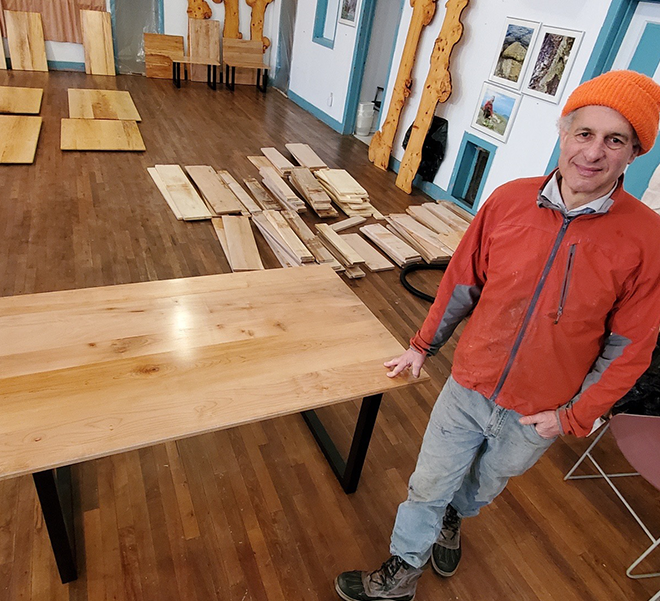
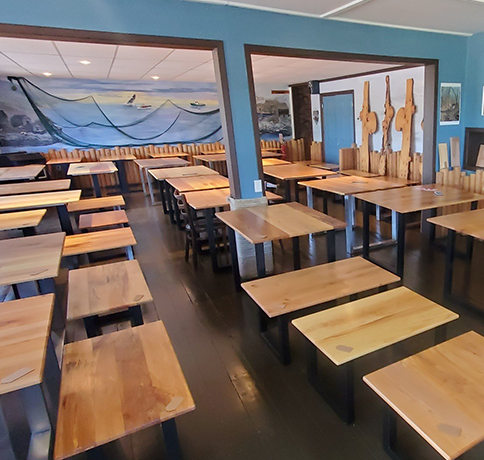
Our Process
With a commitment to eco-forestry principles, we engage in selective cutting techniques to preserve the diverse ecosystem of the forest.
All Forest to Table products are Forest Stewardship Council (FSC) Certified, which serves as a guarantee that the wood is obtained from forests managed in a manner that prioritizes the preservation of biodiversity, benefits the lives of local people and workers, and maintains economic sustainability.
Harvesting
With the help of local professional cutter, Mark DeBaie of Inverness, and my son, Geoffrey Livingston, we use small equipment to winch and haul logs out of the forest towards my workshop, ready for milling.
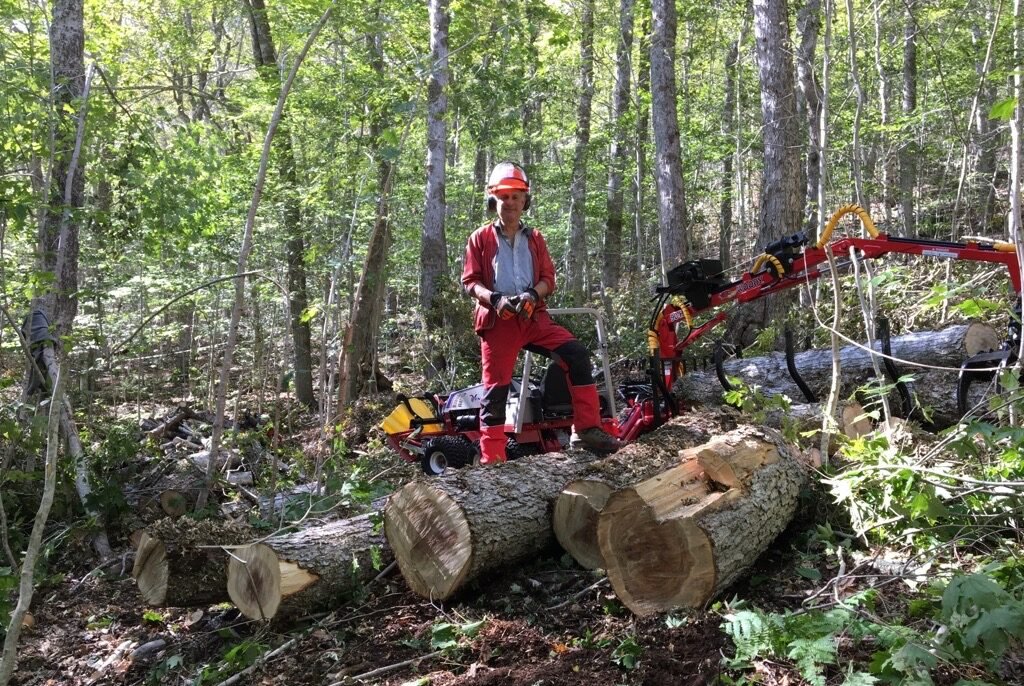
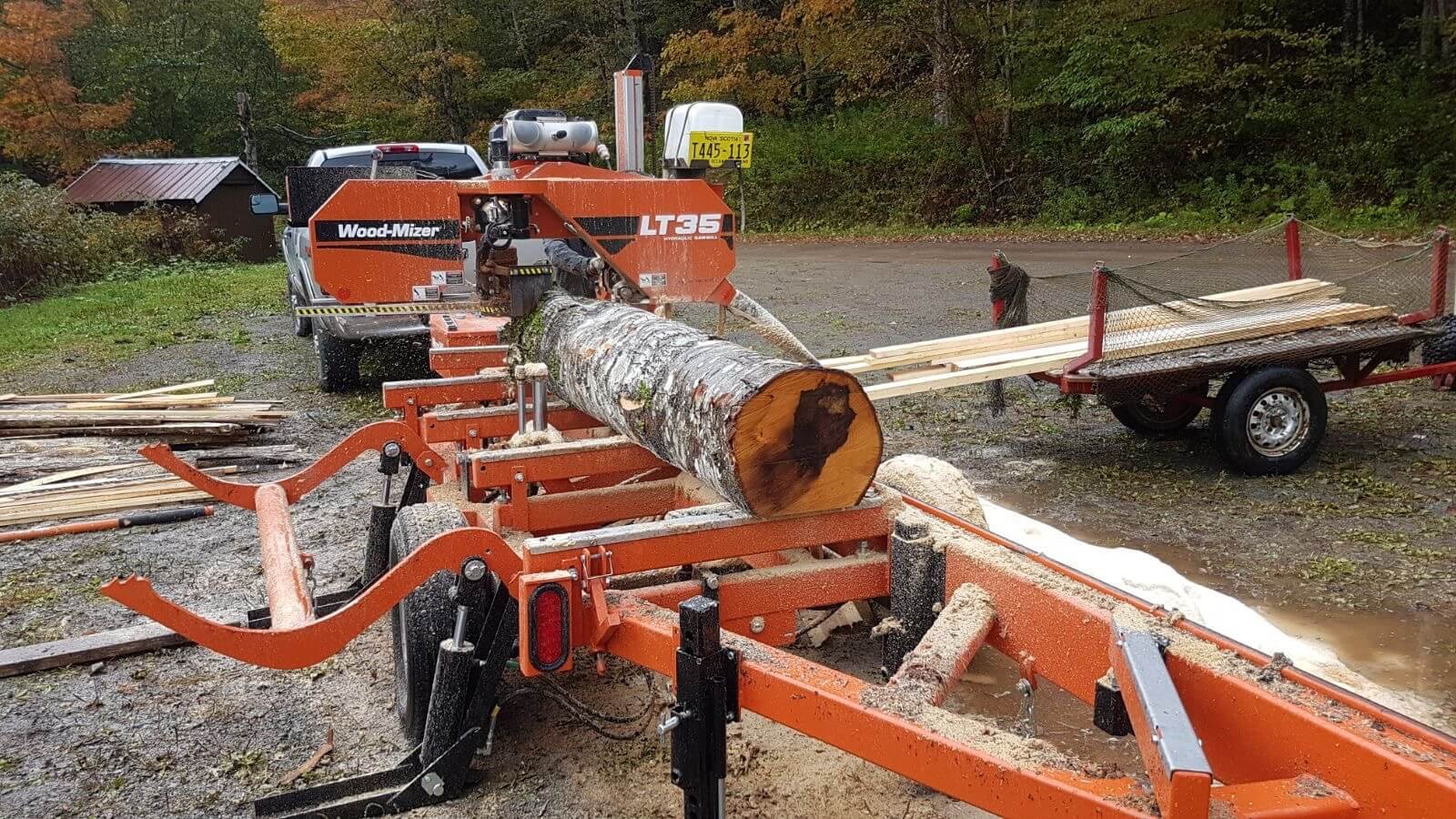
Milling
Several small and locally operated, portable sawmills come to my property in Mabou.
These sawmills play a vital role in milling the logs we have harvested and transforming them into the high-quality lumber needed for creating the tables.
Our Process & Timeline

Prototype Stage
From idea to reality

Stage 1
Jointing and planing begin the process to achieve smooth, flat boards

Stage 2
Lumber is examined, boards are matched, and the table design comes together
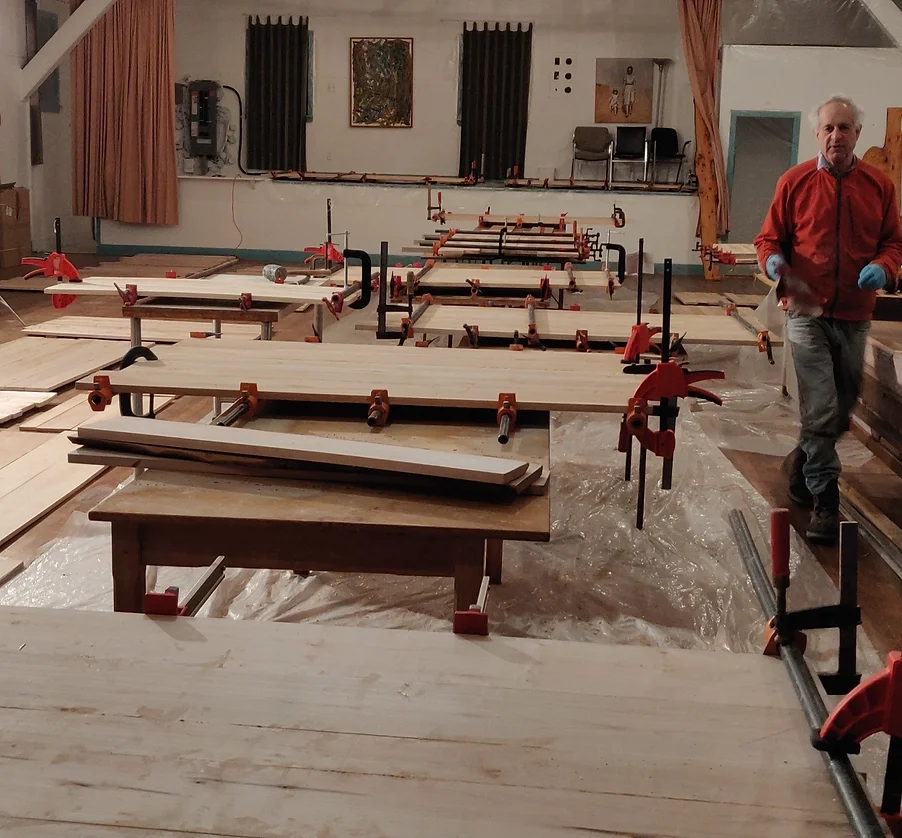
Stage 3
Boards are glued, clamped together to form the tables, and given a rough sanding
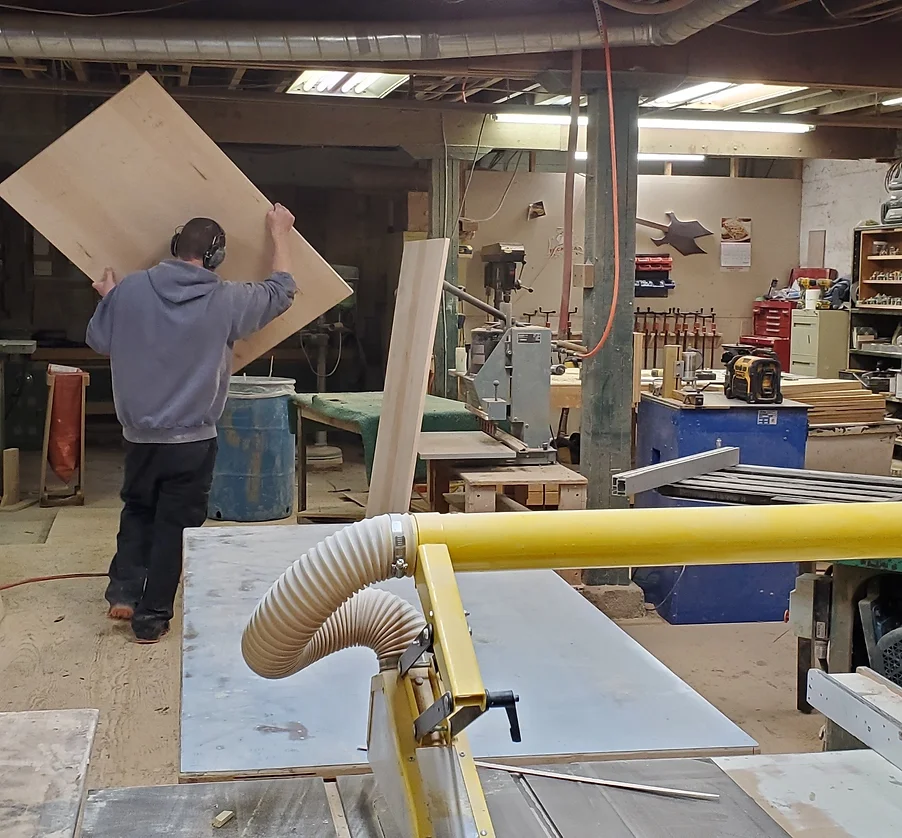
Stage 4
Tables are cut to size and edges are shaped before being sanded for a smooth, even texture
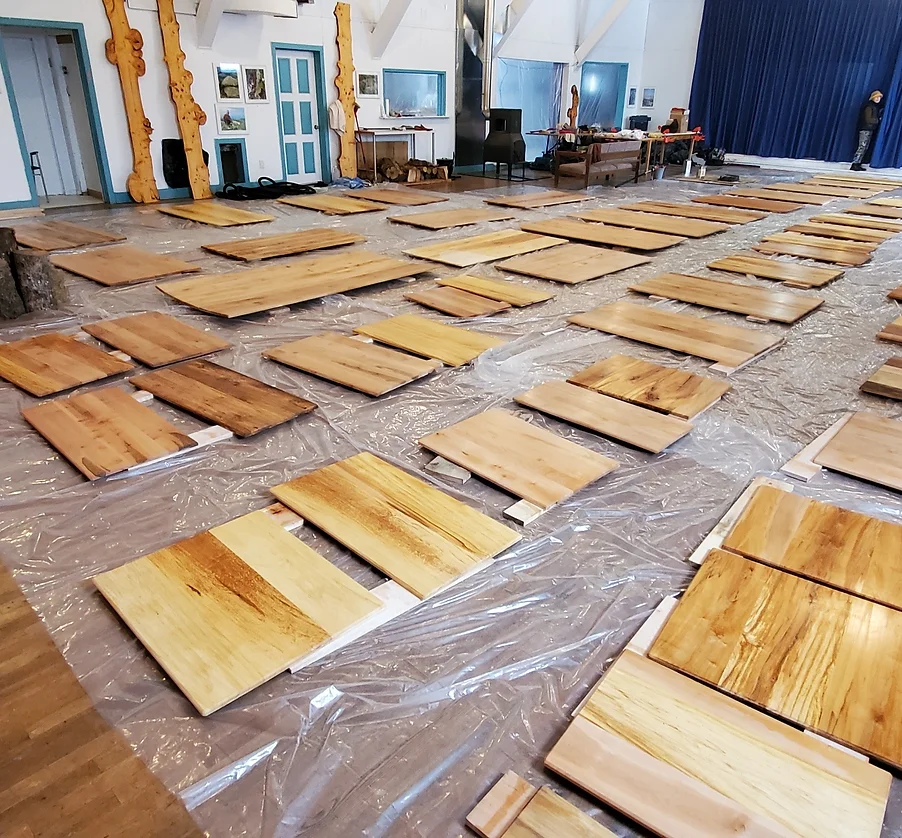
Stage 5
ECO-House Hardwood Oil is applied as a protective and water-resistant finish, enhancing the natural colour and wood grain

Stage 6
Once dried, the steel legs are finally affixed onto the base of the table
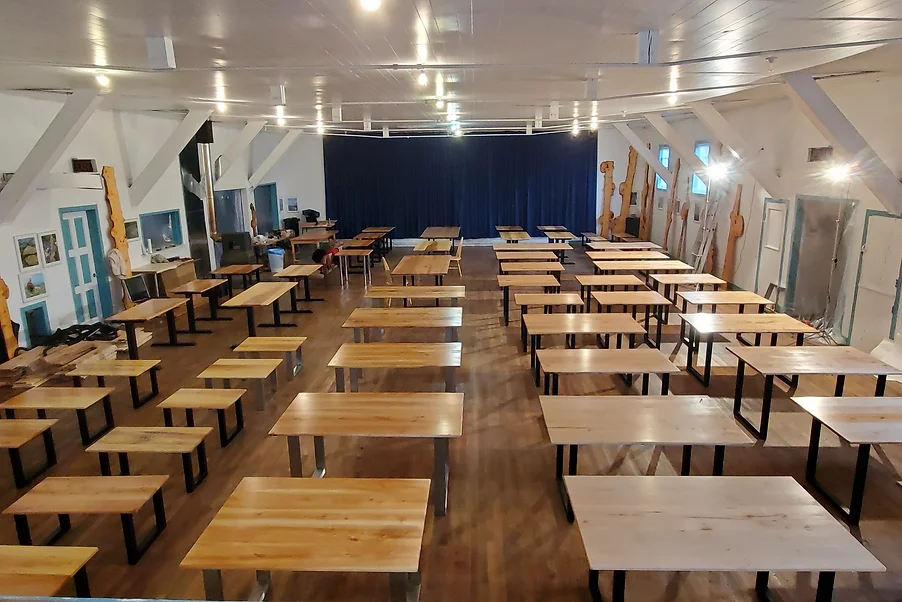
Stage 7
The finished tables undergo a final quality assurance check, and are ready to be sold
Table Legs
We have carefully sourced and selected the highest quality black and stainless steel table legs, sourced from two small Canadian suppliers.
Our larger tables are equipped with aluminum understructure supports, created specifically for us in Margaree, Nova Scotia. These supports enhance the strength of the table structure – prevalent in many modern tables.

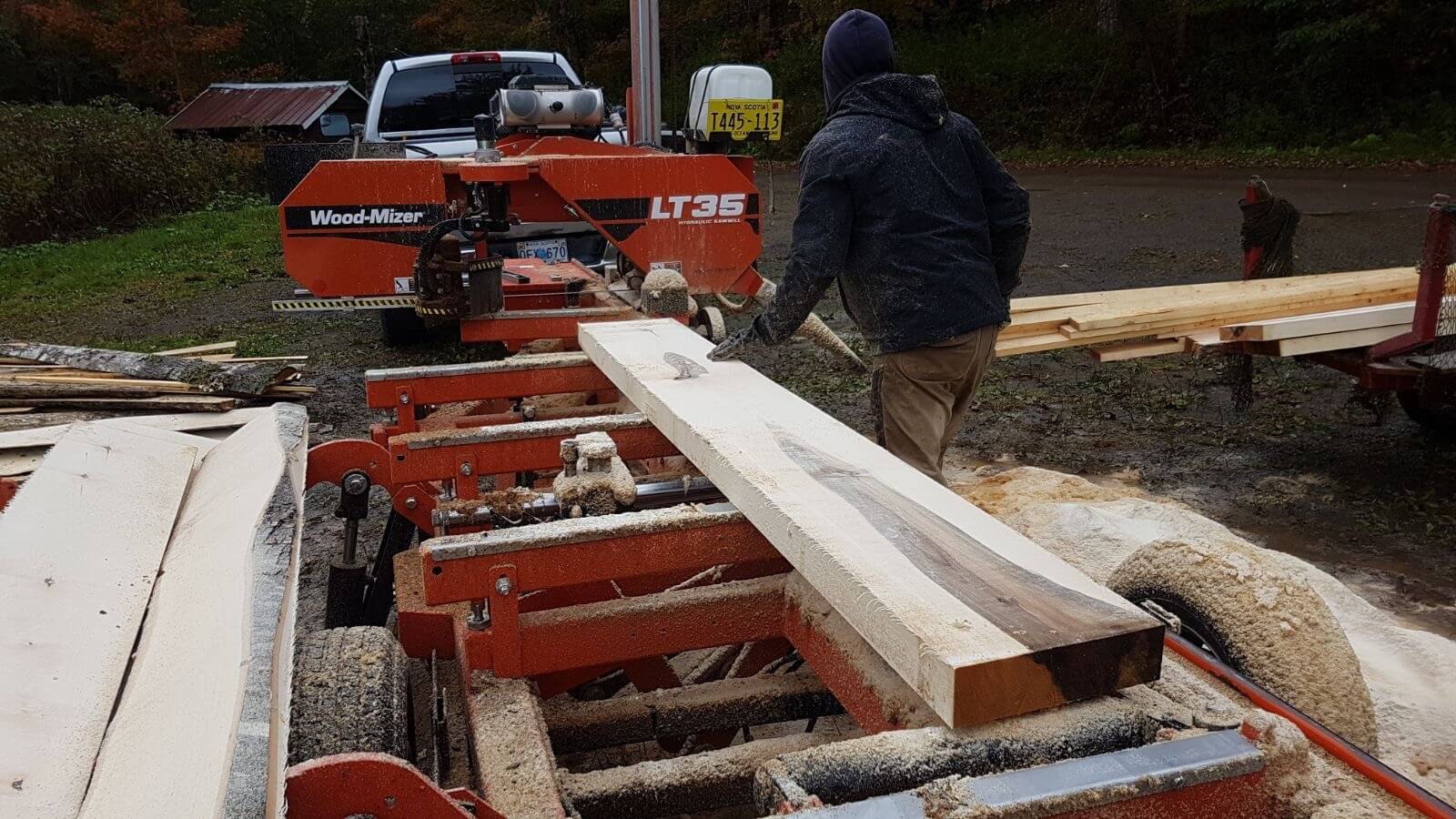
Milling
Several small and locally operated, portable sawmills come to my property in Mabou.
These sawmills play a vital role in milling the logs we have harvested and transforming them into the high-quality lumber needed for creating the tables.
Solar Powered Studio
Solar panels cover the roof of the studio building, and net meter the electricity to the grid.
This sustainable energy source powers the workshop, my home, and even supports our maple syrup operation!
Sustainable Heating
Throughout the Forest Table project, I have prioritized ecological consciousness at every stage.
Last winter we derived 95% of the heat for the studio space from cut-offs and discarded pieces of the hardwood lumber that were originally used in crafting the tables.
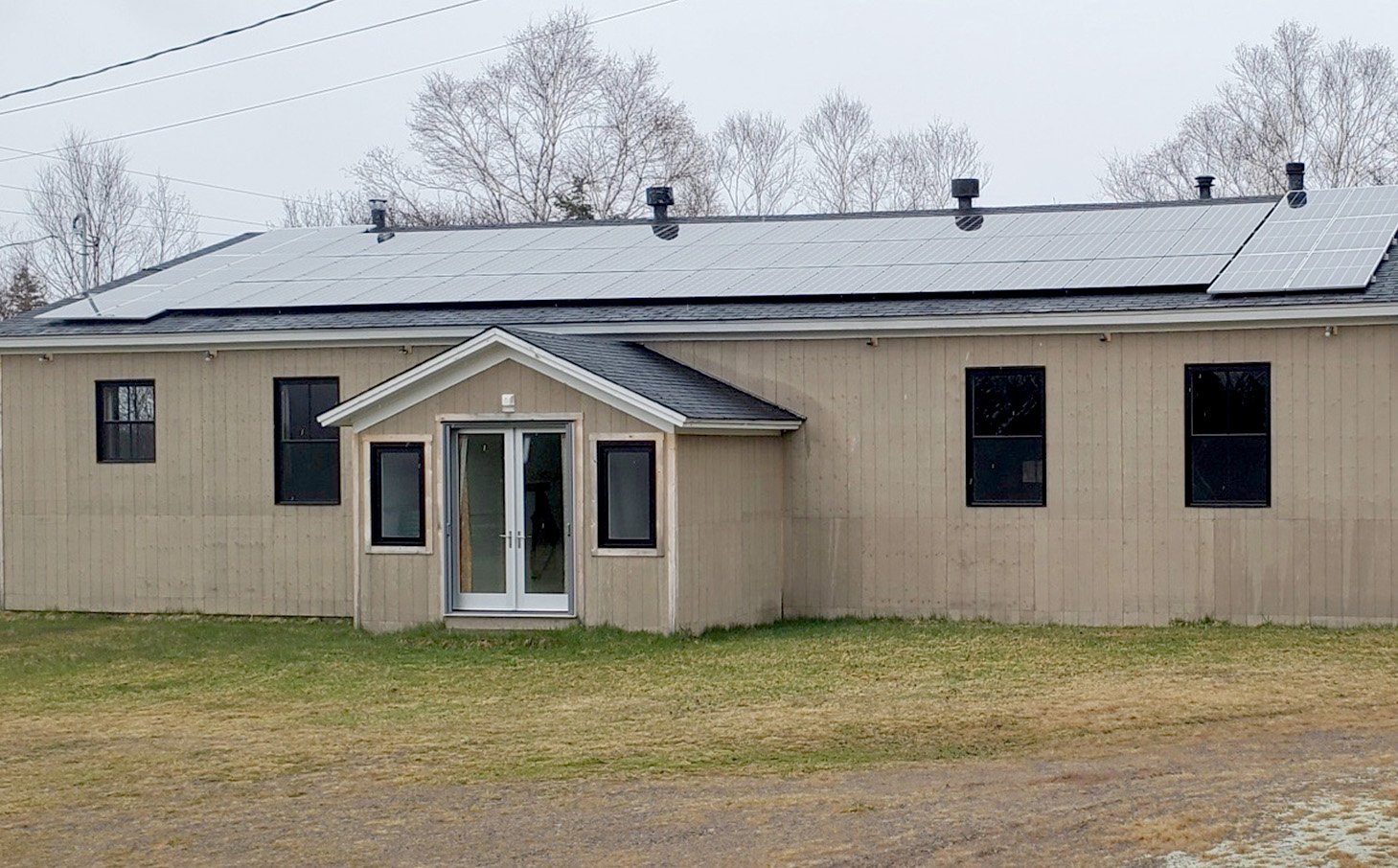

 Cart is empty
Cart is empty